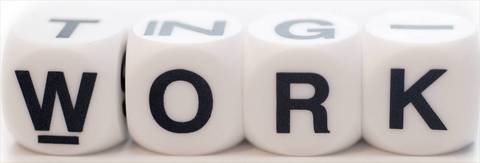Careers
Transferable Skills

Transferable skills/What are you good at?
You want a change; you want a new job; you want to get back to work. How do you decide what you have to offer?
We've looked in previous articles at values and positive qualities which are all very important when you are on the job hunt as these are form part of the job seeker's toolkit to offer a prospective employer. This time we'll look at transferable skills which are the skills you gained from the valuable experiences you had while working at a job you hated and the jobs that came before it, and not just jobs, but every area of your life. The importance is that you don't start from scratch each time but you build on the past as you move forward to something new.
What Are Transferable Skills?
Transferable skills are your skills you've gained from jobs, volunteer work, hobbies, sports, and other life experiences; skills that can be used in your next job or new career. In addition to being useful to career changers, defining your transferable skills is also important to those who are facing redundancy (and looking for another step), to new graduates entering the workforce, to those returning to work after an extended absence…
Examples of transferable skills are, for example, your ability to:
* Plan and arrange events and activities
* Delegate tasks to others
* Motivate others
* Attend to visual detail
* Deal with obstacles and crises
* Multi-task
* Present material orally
* Manage time
* Repair equipment or machinery
* Handle complaints
If you haven't had a job before you need to look at your life experiences to give you a clue; look back at the list above, doesn't it describe some of the skills a mother has?! Don't dismiss any experience you have had! If you've never been out to work before, don't forget that you worked very hard in the home. I once saw a comparison of a managing director's job description and that of a housewife/mother and whose job do you think was the most challenging and most skilful?
How to Identify Your Transferable Skills
You need to be quite disciplined about this so that you come up with a comprehensive list that you can include in your CV for example or talk about in a job interview.
1Make all list of all the jobs/'experiences' you have had
2 Take each one in turn and write down the skills you used
3 Rate your level of skill (and don't be modest). Give a 'beginner', 'experienced' or 'advanced' rating to each
4 Make a composite list when you've been through each one starting with the advanced skills
5 Tick the skills you especially enjoy using as this can help you in your job search
Good luck!
Kate Cobb……
Kate Cobb 0033(0)4 93 20 68 94
www.executive-onlinecoaching.com



